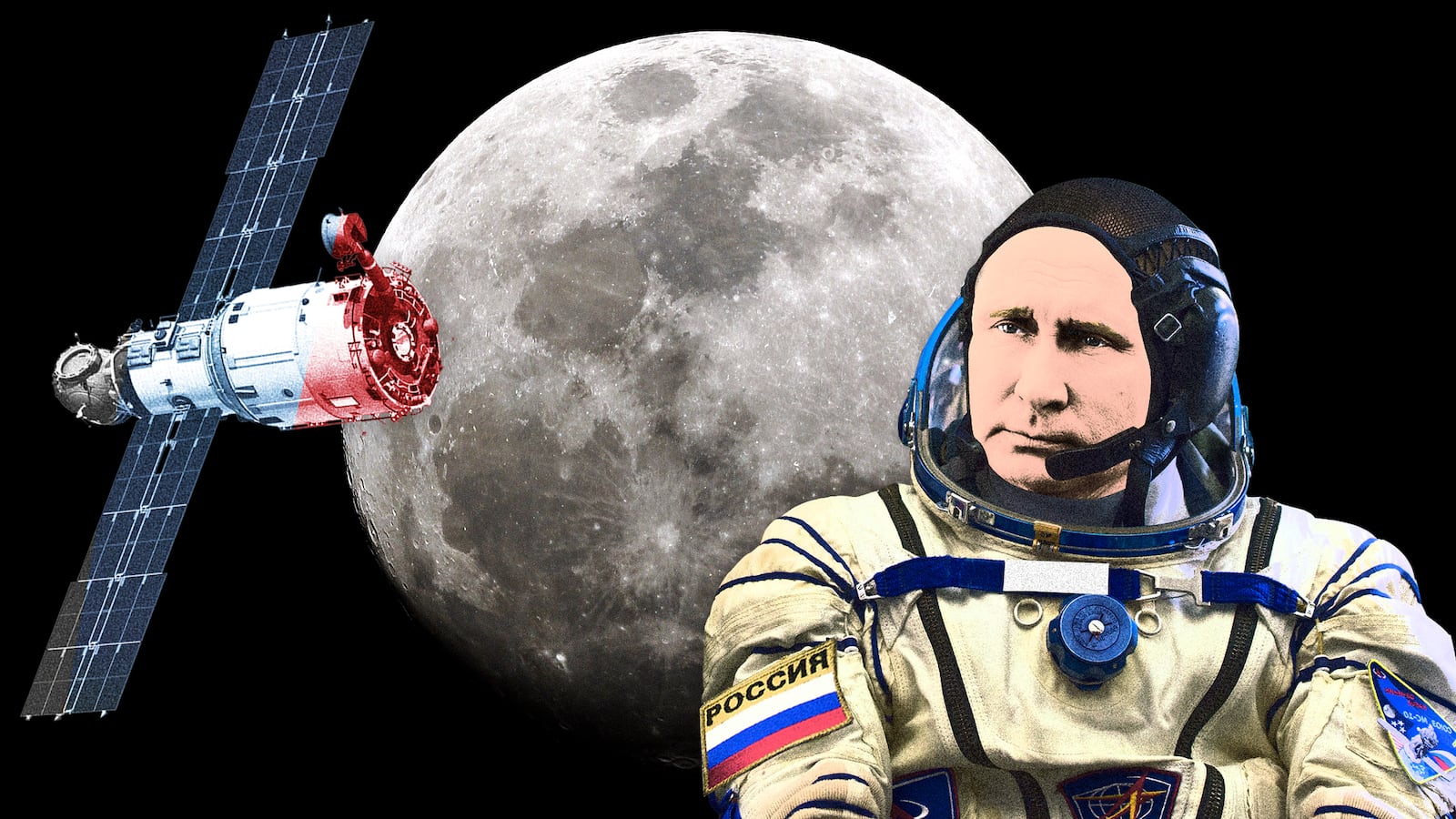The Russian space agency Roscosmos is threatening to back out of a NASA-led program to build and operate a new, moon-orbiting space station.
The threat, which comes just a few months after Russia and the United States co-signed a memorandum on joint space exploration, could be a bluff meant to boost the Russian agency's leverage over the Lunar Orbital Platform-Gateway ahead of its planned 2022 launch.
Dmitry Rogozin, the head of Roscosmos, told Russian state media he objects to Russia playing a "second-fiddle role" in the $2.7-billion Lunar Gateway, which NASA hopes will function as a base for moon exploration and manned missions deeper into the solar system, including to Mars.
Russia could quit the Lunar Gateway program and build its own moon station instead, Rogozin said.
But experts told The Daily Beast it's unlikely Russia would build its own station. They said Rogozin's threat could be part of a negotiating strategy as NASA begins the process of selecting countries and companies to provide components for the Lunar Gateway.
NASA has been clear that its lead role in the Lunar Gateway effort will "allow the United States to set 'rules of road' for activities in space," according to an agency statement.
"Discussions regarding potential international Gateway contributions with international space agencies, including our International Space Station partners, are ongoing," Kathryn Hambleton, a NASA spokesperson, told The Daily Beast.
However, Russia could be uncomfortable simply following America deeper into space. Rogozin's threat could be Russia's way of arguing for a more prominent role on the Lunar Gateway. "I think Russia still tries to bargain with the U.S.," Pavel Luzin, a space expert at Perm University in Russia, told The Daily Beast.
But Russia is bargaining from a position of weakness. On Aug. 29, U.S. and Russian mission-controllers on Earth detected an air leak on the International Space Station. The crew traced the leak to a small hole in a Russian Soyuz capsule docked on the station. A quick patch job sealed the hole.
Roscosmos launched an investigation of the station leak, aiming to determine whether it was the result of a production accident on the ground or a sabotage attempt while the Soyuz capsule was on Earth or in space.
The International Space Station's six-person crew includes two Russian cosmonauts, who live in a separate, Russian-built section of the station that contains the station's airlocks and fuel tanks. Visiting capsules, docked at the Russian segment, boost the station's orbit by firing their engines.
"I think the hole makes NASA reconsider if the U.S. may rely on Russia as a provider/supplier of crucial goods and services in space," Luzin told The Daily Beast.
Right now NASA has no choice but to work with Russians in space. Since NASA retired the last Space Shuttle in 2011, Russian Soyuz capsules have been the only way to transport human crew to the International Space Station. "They [the Americans] need them [the Russians] for ISS," Michael Haddad, a former NASA engineer, told The Daily Beast.
In 2019 NASA plans to test two new American-made capsules that could complement or even replace the Russian craft. Once NASA has its own capsules, it could in theory operate a space station without Russian help.
Russia could sense that its monopoly over certain aspects of space exploration is ending. It's possible Roscosmos is trying to secure a prominent position in the moon-station program before its advantage further erodes. "That's why Russia tries to be harder in the negotiations towards the Gateway project," Luzin said. "Russia de facto says, 'In outer space you, the Americans, need us much more than we, the Russians, need you.'"
If NASA calls Roscosmos's bluff and Russia quits the Lunar Gateway, don't expect Russia to quickly launch a moon station of its own. The cost and technical challenges could prove prohibitive. "Russia is not able to act in space separately," Luzin said.
But it's not only Russia that would suffer. The whole world benefits from the United States, Russia and other countries having at least one venue for working together, hundreds of miles removed from politics and conflict on the ground.
At present, the International Space Station plays that unifying role. "All nations involved in the space station program are instrumental in pushing the boundaries of scientific innovation," Patrick O'Neill, a spokesperson for the U.S. National Laboratory, which oversees science aboard the station, told The Daily Beast.
In coming years, the Lunar Gateway could afford Americans and Russians another opportunity to work together to benefit all mankind.
But only if Russia sticks with the program.






